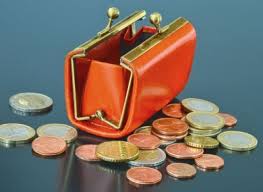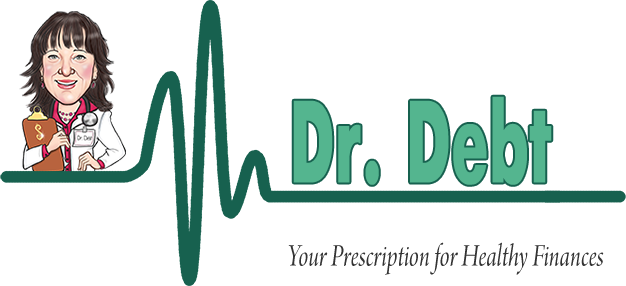To pay or not to pay? That is the question…
What if you are faced with a hard decision. You have to decide what to pay and what not to pay. How do you decide? And how do you handle this stressful decision?
Now don’t get me wrong. I’m not advocating that you don’t pay your bills, but let’s play with this scenario a bit…
You’ve experienced some interruption of income, or perhaps some major unexpected expenses. As a result your budget is tight. There isn’t enough to pay everything AND cover your basic expenses (food, gas, etc.) between now and next pay. Something has to give. Your credit is already maxed out, so that’s not an option. And borrowing money from friends or family is hardly appealing. You’e considered going to the local Cash-store (Thank fully you opted not to go down that expensive route). So you are left with what appears to be a lose-lose decision.
 I have seen so many people make the wrong decision in this type of scenario. The tendency is to pay the creditor that makes the most noise, and that is not necessarily the best option. Let me explain…
I have seen so many people make the wrong decision in this type of scenario. The tendency is to pay the creditor that makes the most noise, and that is not necessarily the best option. Let me explain…
It is important that we begin this explanation by discussing the two different kinds of debt – secured and unsecured – and the consequences of not paying each.
Secured debt means if you do not pay it, the lender can take back whatever they hold as security. If you don’t pay your mortgage, the lender can take your home. If you don’t pay your car loan, the lender can take you car. If you don’t pay a loan that a family member cosigned, they can go after the cosigner.
Unsecured debt on the other hand is dealt with differently. If you don’t pay it, the debt will go into collections (after a few months of not paying), the lender or the collection company then has to consider taking legal action – going to court, at a cost, to get an order to force you to pay (through a garnishee or some other means). It’s a lengthy process and one that they may, or may not, pursue depending on how much the debt is and whether or not they can recover it. If you own property, once the lender takes you to court and is granted a Judgement, they CAN put a lien on your property AND they can force you to sell. (It is unlikely they will force a sale if you have a mortgage on the property, but not impossible).
Ok, those are the basics. So, back to what I was saying…the most common mistake I see people make is they pay the credit card debt and let their car or house payment go. Why? Because credit card companies (or payday loan companies, finance companies, etc.) tend to be more aggressive then secured debt companies AND they threaten a lot of nasty things that scare you to death.
What I want you to know is that if you let your unsecured debt go, you can always take steps to get it back on track once you are able to. If you default on your home or your car loan, and they take it, you have a whole new level of fight on your hands.
Hopefully you will never have to make those types of decisions. But in the event you do, here are some tips to help you make the right ones.
- The minute you know you have a financial crisis looming, take proactive steps. Contact all loan companies and ask them what they can do for you to give you some breathing room for a few weeks or months. You are looking for things like “interest-only payments”, or “deferred payments”. Or possibly a re-finance.
- If you have been up to date on all payments to this point, ask if there is a chance to get your interest rate lowered. (This only works if your payments are up to date. The minute you are late on payments, you will have lost any negotiating power).
- Make the ‘minimum payments’ on your credit cards, if you are not doing so already, to free us some income for daily cash needs.
- Read your mortgage contract. It will state when the lender can start foreclosure proceedings. Normally it is when you have missed three payments. You could potentially miss a payment or two without the risk of your house being taken, but that is a very dangerous strategy unless you are absolutely certain you can catch up on the missed payments.
- Review every line item on your budget (every expense you have) and take what steps you can to decrease each one. For example, call your insurance company and ask if they can give you a better rate, call your telecommunications provider(s) and ask them the same question, or cut back on the services you subscribe to.
- Consider opening a new bank account to protect your income so you can decide what to pay and when and avoid the risk of lenders taking out a payment that is missed and possibly removing funds earmarked for another payment.
- And last, but certainly not least, cut out all non-necessities. It helps to know what you need to live in ‘survival mode” so you can adjust back to that amount when you need to.

If there is one thing you can be certain of, it is that nothing ever stays the same. Having a strategy for a financial setback is a crucial part of your well-being plan. Our tendency to live to, or above our means, leaves little room for moments of financial uncertainty.
Wishing you good financial health,
Mary Ann Marriott
aka Dr Debt





